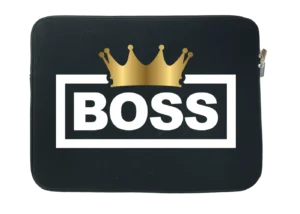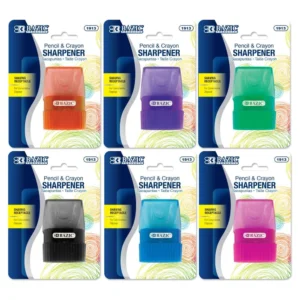Introduction to Tier 1 Net 30 Accounts
In the bustling arena of business financing, setting up a robust credit profile is vital for those looking to navigate the financial landscape smoothly. Enter Tier 1 Net 30 accounts—a game-changing tool for startups and small businesses.
But what exactly are these accounts? In essence, they are a type of vendor credit allowing businesses to purchase goods or services now and pay within 30 days, sans interest.
The magic lies in the “Tier 1” status, which signifies that your payment habits are shared with major business credit bureaus like Dun & Bradstreet, Equifax, and Experian. This continuous reporting is key to building and solidifying your business credit profile, paving the road to financial growth and opportunity.
Understanding Tier 1 Net 30 Accounts

Definition and Mechanism
Let’s kick things off by understanding what Tier 1 Net 30 accounts are all about. At their core, these accounts function as a form of vendor credit. Imagine you’re able to purchase goods or services for your business today, but instead of having to pay immediately, you get a 30-day grace period to settle your bill. The best part? There are no interest charges within this window!
The “Tier 1” designation is key here. This isn’t just any credit account—it’s high-impact! Tier 1 means the vendor reports your payment activity to major business credit bureaus such as Dun & Bradstreet, Experian, and Equifax.
This active reporting is vital because it helps build a strong business credit profile, which can open doors to future financing opportunities. It’s essentially a win-win: you get the goods you need while paying on time builds your credit rating.
Importance of “Tier 1” Designation
Now, why is the “Tier 1” status so crucial? Well, not all vendor credit accounts are created equal. Tier 1 indicates the vendor has a solid standing and is recognized by major credit agencies. Basically, if you’re paying on time, this designation ensures that your efforts are acknowledged and rewarded in the world of business credit.
Think of it like laying down a strong foundation for your financial house. Every timely payment is another brick in that foundation, making your business more attractive to lenders and suppliers who wish to work with trustworthy partners.
Benefits of Tier 1 Net 30 Accounts
How to Build Credit for a New Business
For new businesses, building credit can seem like a daunting challenge. Traditional financing often requires a robust credit history that new businesses frequently lack. Here’s where Tier 1 Net 30 accounts come in handy.
They provide a straightforward way to begin constructing your business credit. With every timely payment, your credit score receives a boost, encouraging lenders to see your business as a safe bet for future loans and credit lines.
Cash Flow Optimization
One of the standout benefits of Tier 1 Net 30 accounts is the room it gives you to breathe, financially speaking. A 30-day payment window means you have ample time to use the products or services you’ve acquired to generate revenue before your bill is due. Imagine having the ability to turn a profit, reinvest in your business, or even pay some operational expenses rather than worrying about immediate payment.
This flexibility can be particularly vital for businesses that deal with longer payment cycles. Instead of stressing about cash availability when clients delay their payments, your cash flow remains stable and predictable.
Personal Credit Protection
Perhaps one of the most comforting aspects of Tier 1 Net 30 accounts is their potential to shield your personal credit. Often, these accounts do not require personal guarantees, meaning that your personal credit score stays protected even if your business faces a rocky financial season.
Separating personal and business finances is a savvy move that allows you the freedom to take calculated business risks. If missteps occur, your personal financial reputation remains intact, providing peace of mind and allowing for continued personal financial wellbeing.
With the Tier 1 Net 30 account, you’re not only building your business’s creditworthiness but also laying down a safety net for yourself by keeping personal credit matters separate from business dealings. It’s a proactive strategy that supports innovation, growth, and ultimately, long-term business success.
Accessibility and Approval Process
Tier 1 Net 30 accounts are heralded for their accessibility, making it easier for businesses, especially startups and small enterprises, to kickstart their credit-building journey.
Lenient Approval Requirements
One of the standout features of Tier 1 Net 30 accounts is their lenient approval requirements. Traditional credit sources often have strict criteria that small or newly established businesses might struggle to meet, like a long credit history or substantial revenue figures.
In contrast, Tier 1 Net 30 accounts typically focus on business fundamentals rather than extensive financial backgrounds. This leniency offers a welcoming gateway for businesses aiming to prove their financial reliability.
By maintaining regular, timely payments, these businesses can gradually establish a noteworthy credit history, providing a strong stepping stone towards accessing larger credit facilities in the future.
Building a Positive Credit Track Record
Building a positive credit track record is a crucial aspect of financial management for businesses. Tier 1 Net 30 accounts play a pivotal role here by allowing businesses to demonstrate their ability to handle credit responsibly.
With each timely payment recorded and reported to major credit bureaus, such as Dun & Bradstreet, Experian, and Equifax, companies steadily enhance their credit profile. Over time, this cultivated creditworthiness opens the door to more comprehensive financing options, fostering an environment ripe for future growth and expansion.
Selecting the Right Vendors
 Image courtesy: Unsplash
Image courtesy: Unsplash
When venturing into Tier 1 Net 30 accounts, selecting the right vendors is key to maximizing financial and credit-building benefits.
Product Relevance and Credit Reporting
Choosing vendors whose offerings align with your business operations is essential. Your selected vendor’s products should contribute to your company’s daily functions or growth goals.
Simultaneously, it’s vital to ensure that these vendors report payments to the trio of major business credit bureaus. This diligent reporting is what transforms each transaction into credit-building action, establishing and enhancing a robust credit score that speaks volumes to potential lenders and partners.
Approval Requirements and Customer Service
Understanding a vendor’s approval requirements is critical to ensuring smooth application and ongoing operations. Be on the lookout for specific prerequisites, such as minimum purchase constraints, which might affect your choice. Additionally, excellent customer service is invaluable. It’s beneficial to designate vendors who are recognized for their robust support systems and proactive assistance. When challenges arise, a responsive vendor can make a huge difference in maintaining continuity and resolving issues swiftly and effectively.
Pricing and Terms Comparison
Conducting a detailed comparison of vendors’ pricing and terms can significantly influence your bottom line and credit strategy success. Small differences in pricing or terms, such as early payment discounts or flexible payment schedules, can compound to create tangible savings and advantages over time.
Prioritizing firms that offer the most competitive terms will not only benefit immediate cash flow but also ensure the overall financial health and credit utilization ratio of your business remain optimal.
In conclusion, Tier 1 Net 30 accounts offer a suite of benefits for businesses eager to establish and foster a solid credit profile. By mindfully navigating the accessibility and vendor selection process, companies can unlock a wealth of credit-building opportunities. This strategic leverage positions businesses not only to bolster their credit scores but also to drive sustainable success and growth in an increasingly competitive landscape.
Long-term Credit Building Impacts
Establishing a solid credit profile is crucial for businesses aiming for financial success. Tier 1 Net 30 accounts play a pivotal role in this journey, providing high-impact options for building and fortifying your credit score. Let’s explore the long-term impacts these accounts can have on your credit profile.
Positive Payment History and Tradelines
Each time you make a punctual payment on a Tier 1 Net 30 account, you’re doing more than just settling an invoice; you’re building a positive payment history, a cornerstone of any strong credit profile. Consistently paying on time demonstrates financial responsibility to lenders and suppliers, which in turn helps enhance your credit score.
Moreover, every Tier 1 Net 30 account you open represents a tradeline on your credit report. Tradelines are critical as they showcase your credit activity, including your ability to manage credit relationships effectively. These tradelines are key to impressing potential lenders who are assessing your creditworthiness for larger loans or more substantial credit lines.
Length of Credit History and Credit Utilization
Tier 1 Net 30 accounts also contribute to the length of your credit history. A longer credit history generally reflects positively on your credit score. By starting with these accounts early, you begin establishing a history that supports future credit applications.
Additionally, how you manage these accounts can impact your credit utilization ratio—a significant factor in credit scoring. This ratio is the percentage of available credit you’re using.
Keeping this ratio low by managing Tier 1 Net 30 accounts responsibly boosts your credit score over time. Staying disciplined in using these accounts strategically is essential for maintaining a strong credit profile.
Best Practices for Managing Tier 1 Net 30 Accounts
To truly leverage Tier 1 Net 30 accounts for credit building, it’s important to manage them wisely. Here are some best practices to guide you on this credit-building journey.
Comprehensive Reporting and Starting Small
Firstly, opt for vendors who report to all three major business credit bureaus: Dun & Bradstreet, Experian, and Equifax. Comprehensive reporting ensures your positive payment history affects your credit profile significantly, maximizing its impact.
Begin your credit-building journey by starting small. Open one or two Tier 1 Net 30 accounts initially, and focus on building impeccable payment history. This not only helps you manage your finances better but also cultivates trust with vendors—creating a stronger foundation for future growth.
Negotiating Terms and Monitoring Credit Report
As you build a positive payment history, don’t hesitate to negotiate better terms with your vendors. You could negotiate for higher credit limits or even discounts for early payments. Such measures can further improve your cash flow and keep your credit utilization rate low, making your credit profile even healthier.
Lastly, make a habit of regularly reviewing your business credit report. Keeping a close eye on your report allows you to track your progress, catch errors, and correct any discrepancies that may arise. Monitoring your report helps ensure that all your hard work in managing Tier 1 Net 30 accounts translates into tangible credit-building benefits.
In summary, Tier 1 Net 30 accounts offer businesses an excellent pathway to build credit. By leveraging the benefits of these accounts wisely and adhering to best practices, companies can develop a robust credit profile that opens doors to bigger financial opportunities.
Remember, the key to success lies in consistency, careful planning, and making timely payments. With patience and discipline, your business can forge a strong credit future.
Cautions and Potential Pitfalls
 Image courtesy: Unsplash
Image courtesy: Unsplash
When stepping into the world of Tier 1 Net 30 accounts, it’s important to remain informed and vigilant. While these accounts offer numerous advantages, there are some potential challenges you should be aware of to protect your business and credit profile.
Interest and Late Fees
One major benefit of Tier 1 Net 30 accounts is the absence of interest if payments are made within the 30-day window. However, missing this deadline can lead to significant late fees.
These fees can accumulate rapidly and diminish the benefits of using Net 30 accounts. To avoid late payments, set reminders and prioritize settling invoices on time.
Credit Utilization
Even with the flexibility of Net 30 accounts, maintaining a low credit utilization ratio is key to building a healthy credit score. Overextending by maxing out your credit can raise red flags about your financial health to potential lenders. It’s essential to use credit wisely and avoid exhausting your credit limits.
Vendor Reliability
Not all vendors are equal. Some may not report payments to all major credit bureaus or could have spotty customer service. It’s crucial to research vendors upfront, selecting those known for reliability and transparency. This due diligence ensures you are partnering with a vendor that will positively impact your credit profile.
Overextension
While it might be tempting to open multiple Net 30 accounts to build credit swiftly, this can be overwhelmingly risky. Juggling several accounts can lead to organizational challenges, increasing the likelihood of missing payments. Start with a manageable number of accounts, and expand only as you gain confidence and a robust system to handle them.
Navigating these potential pitfalls with care allows you to maximize the benefits of Tier 1 Net 30 accounts while safeguarding your business’s financial health.
Conclusion: Empowering Financial Growth Through Tier 1 Net 30 Accounts
In the grand adventure of business finance, Tier 1 Net 30 accounts stand as guiding beacons. They empower businesses, especially startups and small enterprises, to build a strong credit profile, ensuring they’re well-equipped to tackle future financial challenges.
By consistently paying off balances within the 30-day window, businesses lay the groundwork for a positive credit history, unlocking new opportunities for funding.
Moreover, these accounts offer strategic flexibility—they help balance cash flow by allowing companies to generate revenue before settling outstanding invoices. This breathing room can be instrumental in stabilizing finances, especially when dealing with unforeseen delays in client payments.
By delving into the world of Tier 1 Net 30 accounts, entrepreneurs can confidently separate their personal and business credit, protecting personal financial health while letting their business explore new horizons.
The key is to start wisely, choose vendors carefully, and make consistent, timely payments. As you embark on this financial journey, remember: a solid credit foundation not only supports growth but also empowers your business’s potential to thrive. With patience and strategic planning, the financial sky’s the limit!







